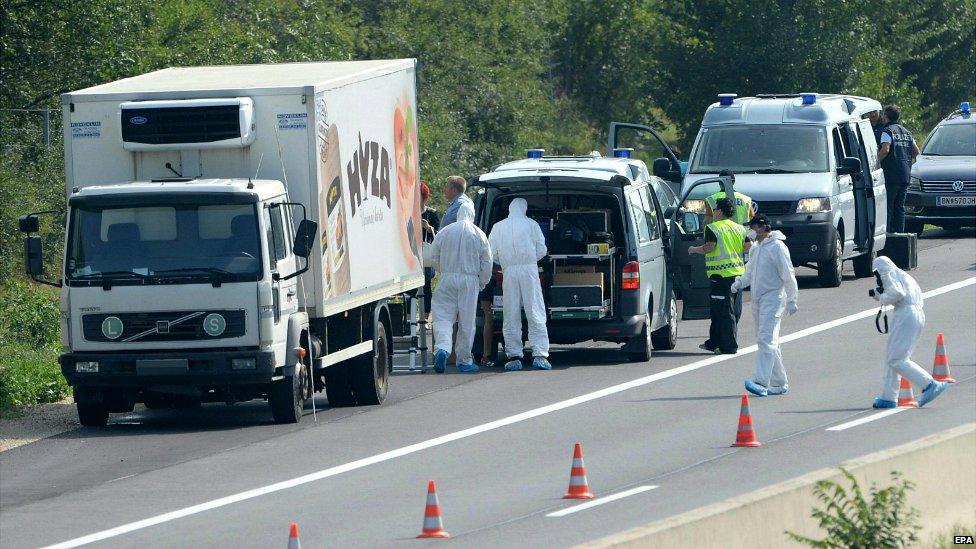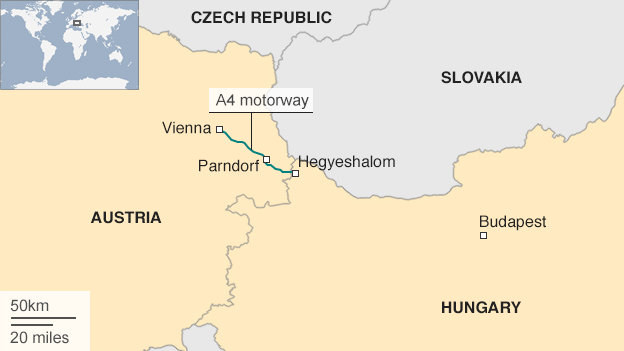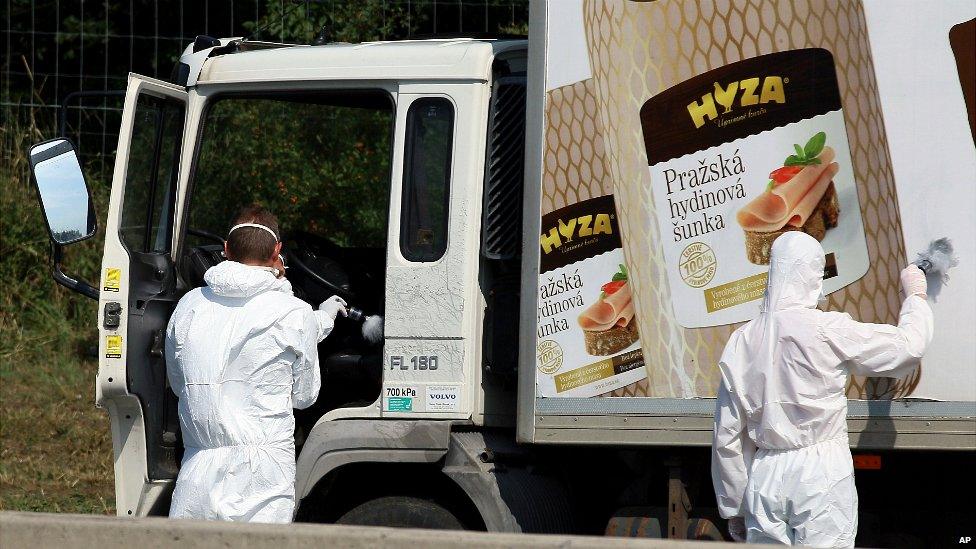Austria lorry migrant deaths: What we know so far
- Published

The lorry was towed away on Thursday from the lay-by where it was found
The bodies of 71 people, thought to be Syrian migrants, have been found in an abandoned lorry on a motorway in Austria.
Here is what we know so far about the discovery:
Who are the victims?
Police say there were 59 men, eight women and four children in the lorry. Travel documents discovered among their belongings have led authorities to believe they were Syrian refugees. The condition of the victims' remains initially made it difficult to determine the number of dead.
How did they die?
They are believed to have suffocated in the back of the small lorry as it drove through Hungary, but were not discovered until about two days later. The lorry had no ventilation.
How were they discovered?
Police were alerted to the lorry when a road worker saw liquid seeping from the vehicle. It was abandoned on Austria's A4 motorway between Neusiedl and Parndorf.

Has anyone been arrested?
Three Bulgarian men have been detained in Hungary, suspected of driving the lorry. They are thought to have left the Hungarian capital, Budapest, for Austria on Wednesday morning. Police said they suspect the crime was part of a Bulgarian-Hungarian human trafficking operation.
Who owns the lorry?
The Slovakian poultry company, Hyza, whose logo appears on the lorry, says it no longer owned the vehicle but its branding was not removed. Hans Peter Doskozil, a provincial Austrian police chief, said it was a refrigerated vehicle, which is not a typical choice for people smugglers.
Where is it now?
Police towed the vehicle to a customs building with refrigeration facilities where forensic teams worked through the night to examine the bodies.

The lorry is thought to have left Budapest in Hungary on Wednesday morning
Have you been affected by this story? If you wish to contact BBC News, you can do so by emailing haveyoursay@bbc.co.uk, external
Please include a contact number if you are willing to speak to a BBC journalist. You can also contact us in the following ways:
Whatsapp: +44 7525 900971
Send pictures/video to yourpics@bbc.co.uk, external
Tweet: @BBC_HaveYourSay, external
Send an SMS or MMS to 61124 or +44 7624 800 100